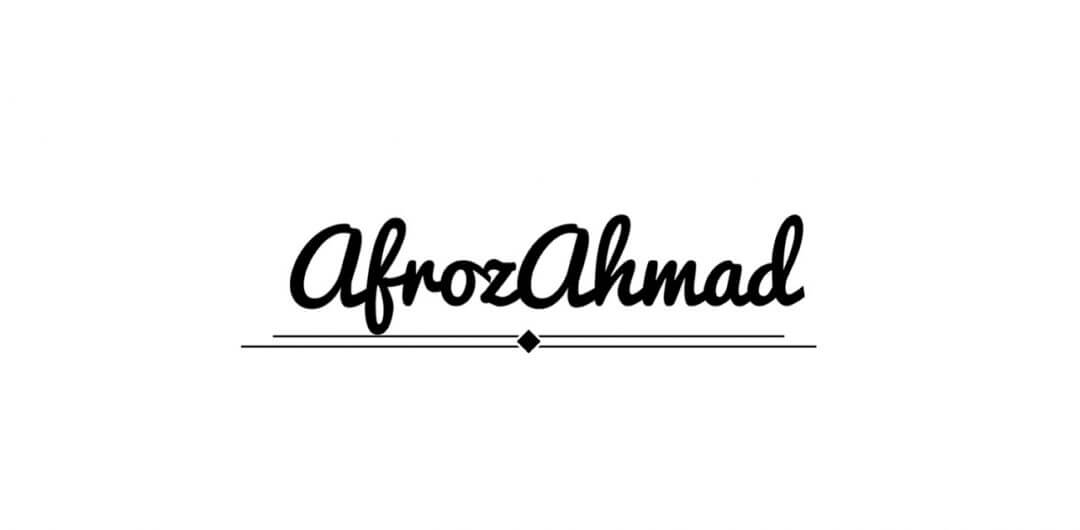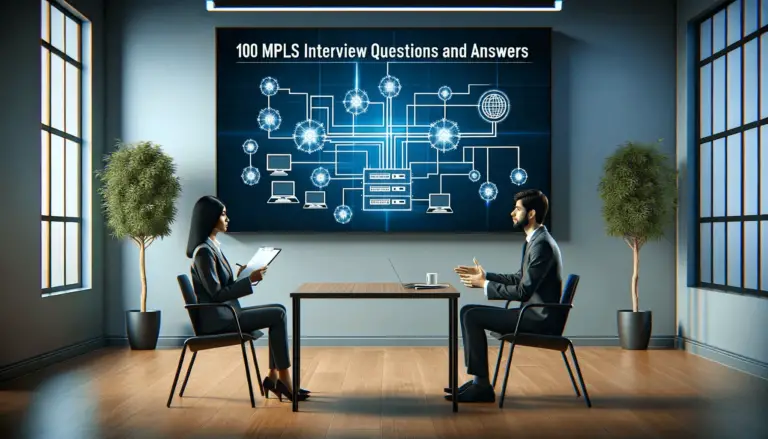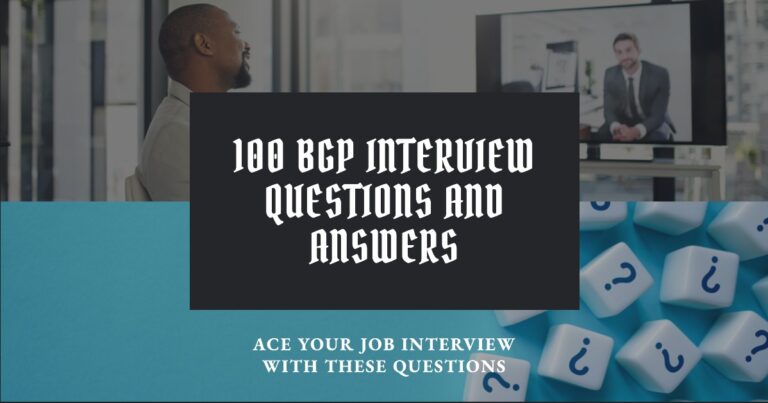Behavioural interview questions and answers are designed to learn about your past behavior, which relates to the job description and position you are interviewing for. The general belief is that your past behavior is predictive of your future behavior, so the hiring manager wants to learn what you have done to understand better how you will perform in the future.
In this blog post, I will provide you with interview tips on handling behavioral questions and provide sample answers.
I have taken a sample company like Cisco Systems here because, as a Network Engineer, most people’s dream job is to work for Cisco Systems. Before we dive in, one more thing, “behavioural “and “behavioral” are the same thing; it’s just that “behavioral” is used in North America, and the rest of the world commonly uses “behavioural.” So I will use both words interchangeably in this blog post.
What is a Behavioural Interview?
A behavioral interview is where the interviewer asks a candidate to tell stories about specific work situations. These types of questions are meant to illustrate one or more of the following work-related competencies: -analytical skills, leadership skills, organization skills, problem-solving skills, etc. Of course, the behavioral job interviews can vary depending on the job being interviewed for. Still, the general rule of thumb is to give tailored answers to the company and the role.
Traditional interview questions are predominantly behavioral, which are questions that relate to past events. Telling the recruiter your unique situation is the best way to tackle behavioural interview questions and answers. For example, the interviewer may ask you to provide specific examples of work ethics you have encountered or similar situations or events. You have demonstrated specific qualities, such as leadership, sales, analytical thinking, and actions to overcome them. Explain what you did, what you thought, your feelings, and the outcomes.
You may also be asked to give an example of a time that you did not demonstrate a given quality. If this is the case, explain what you did and what you thought about it. Again, be confident and show that you walked through every step of a particular situation whether the interview is happening in the person or it is a video interview.
Quick Tips to answer behavior based common interview questions:-
- Kick the Interview fear out of the room. Instead, think of an Interviewer as a normal person like you who is doing his job and asking you questions.
- Don’t overcomplicate things and make things simple as you can.
- One key to a good behavioral interview is to know yourself. You don’t have to be a trained psychologist to know yourself, but you need to be self-aware.
- You need to know your strengths and weaknesses. For example, you need to know what motivates you, what annoys you, and what you like to do. Then, armed with that knowledge, you can discuss past situations when you have exhibited those traits.
- Your answers should always be backed with an appropriate example where you demonstrated the required skills you have been asked for.
- Know your resume inside out, including the experience, achievements, and contributions you made in each of your jobs.
- Know the company and its industry.
- Engage and surround yourself with positivity. Demonstrate your dedication, honesty and ability to solve the problems.
- Be results-oriented.
- Show that you have organizational and soft skills.
- Show that you are a team player.
- Use STAR method: Answer any question using the STAR method. The acronym STAR denotes a Situation, Task, Action, and Result. For Situation, briefly describe the context and relevant details about the challenge or problem you encountered. Describe your role in overcoming the obstacle or resolving the situation. For Action, describe the specific actions taken by you or your team; it’s critical to emphasize your specific role. Share a successful outcome for Result. Provide quantifiable results or concrete examples of the impact of your effort, if possible.

Common Behavioral Interview Questions and Answers:-
Q1. Tell me about a time when you disagreed with a coworker and how you managed it? (Teamwork Questions)
Quick Tip:- This is one of the common initial screening interview questions. So, It is acceptable, to be honest in this situation, but refrain from demeaning your former colleague.
Sample Answer:- I once disagreed with members of our team about the right way to tackle a technical issue. Even though it was a frustrating experience, it was a great learning experience for me. I learned not to take things for granted, and that change is inevitable. The team I was on respected my opinion and admitted that I was right. It just goes to show that it’s important to voice your opinion, even if you disagree with someone else.
Sample Answer:- I disagreed with a team member at work, but I managed it quickly and appropriately. I confronted them as soon as possible, and we discussed our different viewpoints. There was some tension between us for a little while, but we soon agreed to disagree.
Short Answer:- I had a disagreement with a coworker once. I tried to manage it the best way possible by speaking with them calmly and resolving the issue.

Q2. What are your long-term professional goals?
This question is meant to get to know your motivations for wanting a job. It can be difficult to answer questions like this, but it’s important to give the interviewer a good idea of what you’re looking for in a job. Try to think about how you would go about addressing a problem and how you would take care of a team. This question can also help the interviewer assess if you are a fit for the job.
Thought process:- This question is also an example of Internal job promotion interview questions which are asked to promote a candidate within a company. To answer interview questions like this, think in terms of your next 3 to 5 years. What do you want to achieve? Think about what your skills are and what new skills you need. Ask yourself: What are your strengths? What are you not so good at? What are your weaknesses? What are your skills? What does the future look like for your industry? Think about how you can anticipate the future and be prepared for next year.
A good answer:- I want to be the CEO of my own company, a company responsible for giving students and adults a global platform for their education. My goal is to provide education free of cost as much as possible, which will further help change people’s lives.

Q3. While it’s nice to think of ourselves as invincible, there are vulnerabilities to everything. Please tell us some of the weaknesses you have?
Thought process:- This question is one of the psychological assessment interview questions. Everyone has weaknesses, and the good news is that it means you are not perfect. Everybody has their own unique set of skills and weaknesses, and we should be mindful of this. Telling about your weaknesses will show that you have an interest in improving yourself. It will also help to get a better understanding of your strengths and your potential areas for growth.
Great Answer: You can show weakness and still make an impression:- One of my weaknesses is that I’m a talker. I love to chat, and I struggle with letting people go when they need to get back to their day. I make it a point to emphasize the word “conversational” because being able to chat with someone is a great skill and one that I love doing.
Another Sample Answer:- I’m not particularly good at giving speeches in front of a group of people. I am working on this skill and I would like to say that I became better over the years.
You can also elaborate on following points in your own unique way, but remember in the end always show that you are working hard to improve your weakness.
-I can be too impulsive at times and make decisions based on my emotions rather than facts.
-I tend to be a perfectionist, which can lead to frustration when things don’t go as planned.
-I’m good at taking direction but sometimes I need more autonomy in order to excel.

Q4. How would you evaluate the quality of your work on a scale of 1 to 10 (10 being the best)?
Sample Answer:- I would rate the quality of my work as 9 out of 10. I take great care and attention to detail and always make sure that my work is done well. I do everything possible to ensure that my work is on cutting-edge technology and at the top of its game.
Sample Answer:- I rate my work 8 on a scale of 1 to 10 because I can recognize the mistake I did and will try to improve it. My strengths are my maturity and creativity to identify and overcome my weaknesses and work together with other team members.
Q5. What has been the most difficult part of your prior employment?
Sample Answer:- I would say that the hardest experience in my previous work would be the demanding schedule I was given. I would work an average of 14 hours a day with only two days off a month. Although just the thought would make anyone tired, I managed it for 3 months, and then I politely asked for a change.
Sample Answer:- The hardest experience in my previous work was when a colleague left the company. As the only one in the particular team that knew the new system they were building, I was immediately put on a tight deadline. I was constantly on my toes and stressed, but through the experience, I learned a lot about communicating with my team and myself, which has helped me identify my strengths.
Q6. Tell us more about your passion for technology (your niche) and how it will apply to your professional aspirations.
Sample Answer:- “My passion for technology is that I enjoy learning new things and being able to apply them in my professional life. For example, I really enjoy using Microsoft Excel because it makes data analysis a lot easier. In the job market, I think that people with a passion for technology will be in high demand because so many jobs now require some level of computer proficiency. Additionally, with the growth of digital marketing, having a strong understanding of technology will be a major advantage in the job market.”
Sample Answer:- I am passionate about technology and the impact it has on our everyday life. I use technology to advance my professional aspirations every day as a Network Engineer. I am constantly curious about the latest tech gadgets, and I am always learning new skills to stay ahead of the curve. I am a self-driven person who never feels comfortable just sitting back and letting the world change without me. I can’t wait to not only use my passion for technology in my professional future but to help other people use their passion for technology in theirs.
Q7. Why do you think you will be a good fit for this role at Cisco (or any Company)?
Quick Tip:- This is one of the HR questions in the interview. Always be honest here; only talk about those qualities you can prove with your words in the interview.
Sample Answer:- I will be a good fit for this role at Cisco because of my strong technical background and experience in the networking industry. I have experience working with Cisco products and I am familiar with the company’s culture and values as well. I have a proven track record of designing and implementing networking solutions that meet the needs of customers. In addition, I have excellent communication and interpersonal skills that will allow me to build strong relationships with Cisco customers and partners.
Q8. How did you learn about this employment opportunity at Cisco Systems?
Sample Answer:- I learned about this employment opportunity at Cisco Systems from an advertisement on LinkedIn. I was drawn to it because of its focus on networking and its commitment to innovation.
Sample Answer:- I first learned about this employment opportunity at Cisco Systems when I noticed it on LinkedIn. I was delighted when I heard that I was selected to interview for a Network Analyst position here. This seemed like a great opportunity that would fit my career aspirations well, so I applied.
Sample Answer:- I found out about the opportunity to work with Cisco Systems by going to the website and scrolling through the careers page. I then uploaded my resume for consideration.

Q9. What techniques do you use to establish close relationships with tough clients or customers?
Thought process:- Here, the employer wants to see that you can remain calm in stressful situations, so share the story that demonstrates your ability to resolve conflicts.
Sample Answer:- The best way to establish relationships with tough clients or customers is to provide a sense of reliability. If they trust you to be honest with them, they will want to work with you. There are several ways to do this as a technical advisor: -Shorten the closing process and times. Become more transparent and trusting of the client. -If you know, provide the information freely. -Provide a personal touch with a call.
Sample Answer:- I usually approach difficult clients or customers with a sense of empathy and commonality. I try to establish a rapport by listening attentively, being respectful, and taking the time to understand their situation. Once I have a good relationship with my client or customer, I use my problem solving skills to come up with a solution that satisfies both parties.
Sample Answer:- Try always to greet them politely, be open and chatty with them, ask questions, offer a drink or some food, such as a cookie. Ask how they are doing and share how you are doing. Do not be afraid to listen and give advice when asked for.

Q9. Describe an instance when you went the extra mile for a customer?
Sample Answer:- I guided a customer to the right product. Every customer needs something different. Some come in wanting the most expensive item, and some want a more cost-effective solution. I didn’t judge them but instead led them to an option that was more suited to their needs. I knew that this is what they were looking for when they came in, and I could tell that they were relieved when they found what they needed.
Sample Answer:- My customer service experience was spot on when I realized that a hacker was tapping into a customer’s account. This was a new account, and the hacker had made it to where the customer couldn’t change their password or get the account back. I contacted our Windows Active Directory person, and they were able to help me get this resolved. We reached out to the customer and told them what had happened and were able to get them their account back.

Q10. Describe an instance when you overcame a difficult problem.
Sample Answer:- Recently, I had to specific situation where I have to do a lot of extra work at my job because the person I work with was out sick for the day. I had to cover all of his responsibilities along with mine and I was really stressed out and panicked that I thought I could not do it. Then, I found a way by talking to my boss and other coworkers and then I organized my thoughts and started working on the problem one step at a time. It took a lot of effort, but eventually I got it done.
Q11. Describe how you would approach an ambiguous scenario in a challenging situation? (Adaptability Questions)
Sample Answer:- I would approach it professionally. I would talk to the person confronting me about the situation and try to understand what their concerns are and what their needs are. Even if it is not clear that they are in a bad situation, I will show them that they can depend on me for support. I would also use critical thinking to get to the bottom of an issue and then use empathy to show that I care about the person. I would also put myself in the other person’s position to see what could be going on and how I can be there for them.

Q12. Tell me about a time when you were forced to make a critical decision based on incomplete knowledge.
Tip to answer this type of question:- You may be asked to recall a time when you made a decision based on incomplete or incorrect information, or a time when your preconceived notions (rather than actual knowledge) dictated your decision.
It is important to come up with a story, and a good one. If possible, it should be from work. If this type of question is asked in a consulting interview, it is important to come up with a story based on a past consulting case – again, one that will demonstrate you can problem-solve and make good, critical decisions even when you have incomplete or incorrect information.
It is important that the question evokes a real situation where you made difficult decisions with incomplete or incorrect information, and be sure to recite the details.
Sample Answer:- The last time I needed to make a difficult decision when I was working with my co-worker on a project. I had already been working on the project for a few days, and I was making excellent progress, and I was making sure to stay ahead of deadlines. A few days ago, I received some new information from the original project manager, and I quickly learned that the deadline for the project had been moved up by a few months. I had two choices. I could either continue working on the project and deliver something sub-par and would need more work, or I could stop spending time on the project, save myself a lot of hassle, and get some great feedback from the original project manager. I chose to stop working on the project. Which further gave me some time to work on my pending projects.

Q13. Describe a moment when you solved a complex problem using a simple answer.
Sample Answer:- There are many moments when I have solved complex problems using simple answers. One example is when I was working on a project that required data from multiple sources to be merged into one database. The problem seemed complex at first, but I was able to quickly solve it by creating a simple script that ran through the data and merged it into the database.
Sample Answer:- In my last job, I was tasked with getting my entire company into Slack, which is a chat application. At the time, I was the only employee and I was trying to do my best to keep up with the growth. Slack was being used to message other employees, but the group chat feature was not being used because there were too many people. The answer to the problem was to make sure that each group chat has one admin who can control who is allowed in and what they can see. The key to the problem was simple and the group chats quickly became the best tool for communication.

Q14. Tell me about a situation at work where you took a calculated risk.
Sample Answer:- One situation where I took a calculated risk was when I came up with an idea to change company’s new policy and pitched it to my boss. I took a calculated risk because I felt the idea was for the company’s betterment, but I knew it would not be an easy sell. When I pitched the idea to my boss, I was clear about why I felt this change was necessary, supporting my argument with statistics. This pitch helped me to achieve a positive outcome because my boss liked the idea and agreed to make some changes based on my idea. Overall, I was happy with the way my idea panned out and it also served a great example to handle similar situation next time.
Q15. In your professional or personal life, what instances have you experienced when you were unsuccessful?
Sample Answer:- It’s easy to get frustrated when we don’t succeed at something right away. When it comes to work projects, the lack of progress can be discouraging. It’s important to remember that setbacks are natural, and we can learn from them. I have struggled with goal setting my entire life. I will set a goal, but I never know how to motivate myself to achieve it properly. I have had numerous instances where I set goals, but I am not successful in achieving them. Fortunately, I have learned from each instance, and I have adjusted my behavior and improved my goal-setting process. No matter what your situation or profession is, there will be times when we are unsuccessful.
Q16. Would you mind sharing an instance when you disagreed with your supervisor or manager?
Sample Answer:- I first want to say that this disagreement was resolved after a time. There was an instance when I had received feedback from my manager about me and the team culture. I commented that the feedback didn’t feel very constructive because it was short and vague. It felt like that my manager didn’t spend much time providing the feedback. I conveyed my manager politely, asked to provide feedback again, and told him that I was expecting more from him. Which he took positively and gave me detailed feedback, which was actually well thought and helpful.
Later I got to know that he had pending workload, which was the reason for giving short feedback. After this incident, I understood that everyone has their own priorities, goals, and standards in this world. There are times when you will agree with your supervisor, and you might also disagree with them from time to time. In any case, you should accept that there is a high chance that someone has a different opinion from yours. You can try to relate to them on a human level.
Q17. Show me one of your remarkable projects and explain how you did it.
Sample Answer:- I did an incredible project on ipv6 last year. It was about a North American service provider which wanted to stay ahead with its competitors and start providing ipv6 services to its customers. When I first heard about the project, I became excited and start reading about the ipv6 technologies in depth. It was a brand new experience for me as I never did ipv6 project before. My manager helped me in providing the right resources to start and soon I became comfortable enough to talk about ipv6 benefits, use cases, and ipv4 to ipv6 transition technologies to customers.
Sample Answer:- I would like to give an example from my personal life for this. I was able to build a PC for my father for Father’s Day. I began by making a list of all of the parts I would need to make sure all the parts fit together. I then used a program to find some good deals on the parts I needed, and I ordered everything to my nearest store, which happened to be Amazon. After the parts arrived, I assembled them all. Lastly, I wrapped it up with a bow and gave it to him for Father’s Day. On Father’s Day, I was excited to give my dad the new computer that I built for him. And by the looks of it, he was excited to receive it.
Q18. Do you prefer to work alone or as part of a team to achieve a challenging task? (Teamwork Questions)
Sample Answer:- I prefer to work in a team because it’s more collaborative and gives more encouragement. And because everyone is trying to accomplish the same goal, it’s more possible that the project will be done on time.
Sample Answer:- I prefer working alone because I feel like I have more control of the tasks. Also, when you work with a team, everyone tries to provide input and prove himself, making the project much more challenging sometimes.

Q19.When was the last time you worked as a team to finish a challenging task? (Teamwork Questions)
Sample Answer:- The last time I worked on a team to finish a challenging task was two years ago. Our team was created to raise money for a well-needed charity. The charity would provide clean drinking water to developing countries, and as a team, we wanted to give them every penny they needed to get started. We were lucky enough to have a good team leader who had experience and knew how to organize a successful event. He gave us instructions and timelines, but not everyone followed the directions they were given. We had to work as a team to accomplish the frequent updates and changes. To start, we all agreed on a goal. I personally enjoyed meeting the goal, and I learned how to work as a team better.
Q20. When you left your last employment, why did you decide to do so?
Sample Answer:- The main reason I decided to leave my last employment was because I was offered a better position at another company. The new position was a promotion and came with a significant pay increase, so it was a very attractive offer that I couldn’t refuse. Additionally, the new company was located closer to my home, so the commute would be shorter and more convenient. Overall, it just made sense to leave my old job and start fresh at the new company.
Sample Answer:- The last position was not a good fit for me. I realized that my skills were not being used to their full potential, and I could not grow in the role. I also did not have any chance of advancement in the company, and it was hard to see growth opportunities. I felt like I was shuffling projects, and I was not making a difference in the work. It just wasn’t fulfilling for me.

Q21. What are your greatest strengths?
Sample Answer of a Network Engineer:- My greatest strengths as a network engineer are my ability to effectively troubleshoot and solve problems, as well as my vast knowledge of networking concepts and technologies. I have a strong foundation in key networking areas such as TCP/IP, routing, and switching, and I am always keeping up to date with the latest advancements in the field. This allows me to provide my clients with optimal network solutions that fit their specific needs. Additionally, I have a proven track record of successful network deployments and implementations, both in small and large scale environments.
Sample Answer:- My greatest strengths are time management and people skills. I am good at managing my time because I can get stuff done quickly. I even have a talent for solving problems! My people skills are great at giving people solutions when they are in need.
Sample Answer:- One of my greatest strengths is being an excellent communicator. I love talking with people and communicating with them. I am also great at listening to people and providing emotional support to them.
Conclusion
Wow. Quite the list. Thanks for following through. Go on and start preparing for Behavioural Interview questions and answers. You now have the right strategy in your arsenal, which one of the above-mentioned questions you had in your interview, feel free to share your experience with us?
In case you want to prepare for a technical interview, there are lots of technical articles in this blog. Make sure you study all Tips and Questions with Answers for Network Engineer and be prepared for Video Interview.
I would also recommend you to read about VLANs, VLAN tagged vs untagged, and VLAN Trunking Protocol topics to grasp the basic understanding of networking.
- Epson EpiqVision Flex CO-W01 Projector Review - February 21, 2025
- How to Log in to Your Netgear Router - January 17, 2025
- Gaimoo GM200 Mini Projector Review - January 12, 2025




